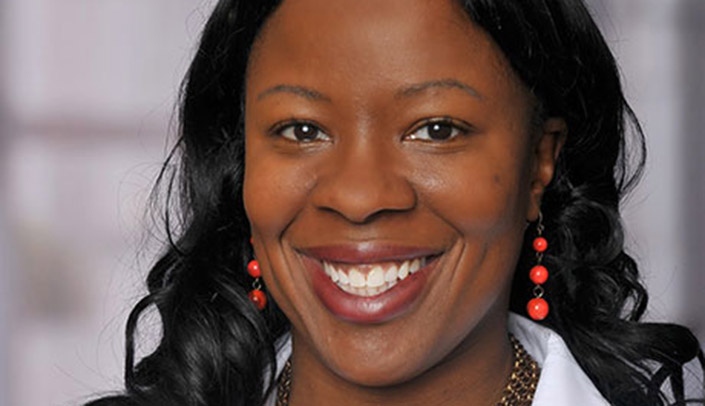The second meeting in UNMC’s “Conversations for Inclusive Excellence” Cultural Humility Series was held on Feb. 11, with attendees discussing the subject of “Combatting Racism & ‘Place-ism’ in Medicine.”
Sheritta Strong, MD, director of inclusion at UNMC, introduced the session and the continued goal: “Creating space so that we can continue to develop understanding of each other and the environments we work in, creating safe, reflective, brave spaces so we can continue to gain cultural awareness.
“We want to create an organizational culture that is equitable, trusting, empathetic, accepting, forgiving, inclusive and willing to acknowledge and address the power dynamics that we have here and in our society,” Dr. Strong said.
The meeting featured a TED Talk video on racism and “place-ism” by Nwando Olayiwola, MD, professor and chair of the department of family and community medicine at The Ohio State University Wexner Medical Center.
During the video, Dr. Olayiwola drew a contrast between her friends Wendy, a black woman and mother, and Sara, a white woman and mother, who lived six miles apart in western Connecticut – and their interactions with the health care system. She used startling examples to illustrate the health care system’s systemic racism, particularly stark life-expectancy differences in different, nearby ZIP codes.
“It’s not really the phenotype of race, it’s the structures of racism that would lead Wendy to toxic accumulation of stress that will lead her to earlier heart disease than Sara,” Dr. Olayiwola said n the TED Talk.
UNMC is holding events to mark Black History Month.
She also discussed “place-ism” — a function of racist systems (such as red-lining, racial discrimination in mortgage lending) that show up in the significant health and life expectancy disparities.
“We know that 80 percent of a person’s health status is determined by social determinants of health, not their interaction with me as their doctor,” she said in the Ted Talk.
“Feb. 11 was a busy day, with events across campus including the Black Men in White Coats discussion that was also impactful,” Dr. Strong said after the event. “We appreciate those who were able to attend as it shows a commitment individually and from various units to make this a priority.”
Dr. Strong called for ongoing discussions in the UNMC community.
“Let’s continue these conversations in our units,” she said. “Let’s build upon these conversations to drive the changes needed to maintain an inclusive culture.”
During the monthly “Conversations for Inclusive Excellence” sessions, individuals will engage in meaningful and, at times, uncomfortable conversations to co-create understanding. Participants also will gain tools to continue the dialogue within their departments and offices. The sessions, which take place the second Thursday of every month, will challenge participants and the assumptions we all make consciously and unconsciously.
The journey toward more inclusive cultures begins with increased awareness, Dr. Strong said. Test your awareness was last month’s challenge. This month’s challenge and question, on health inequity in your community, can be found here.
